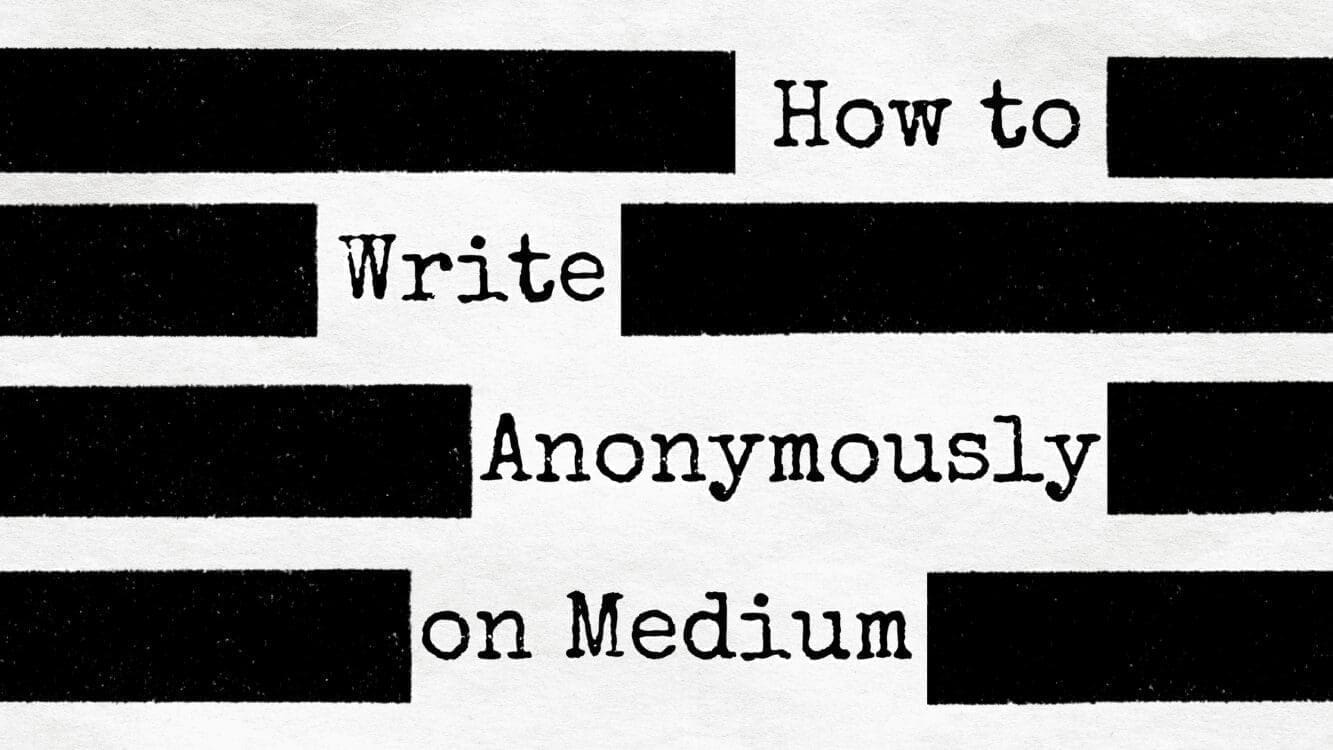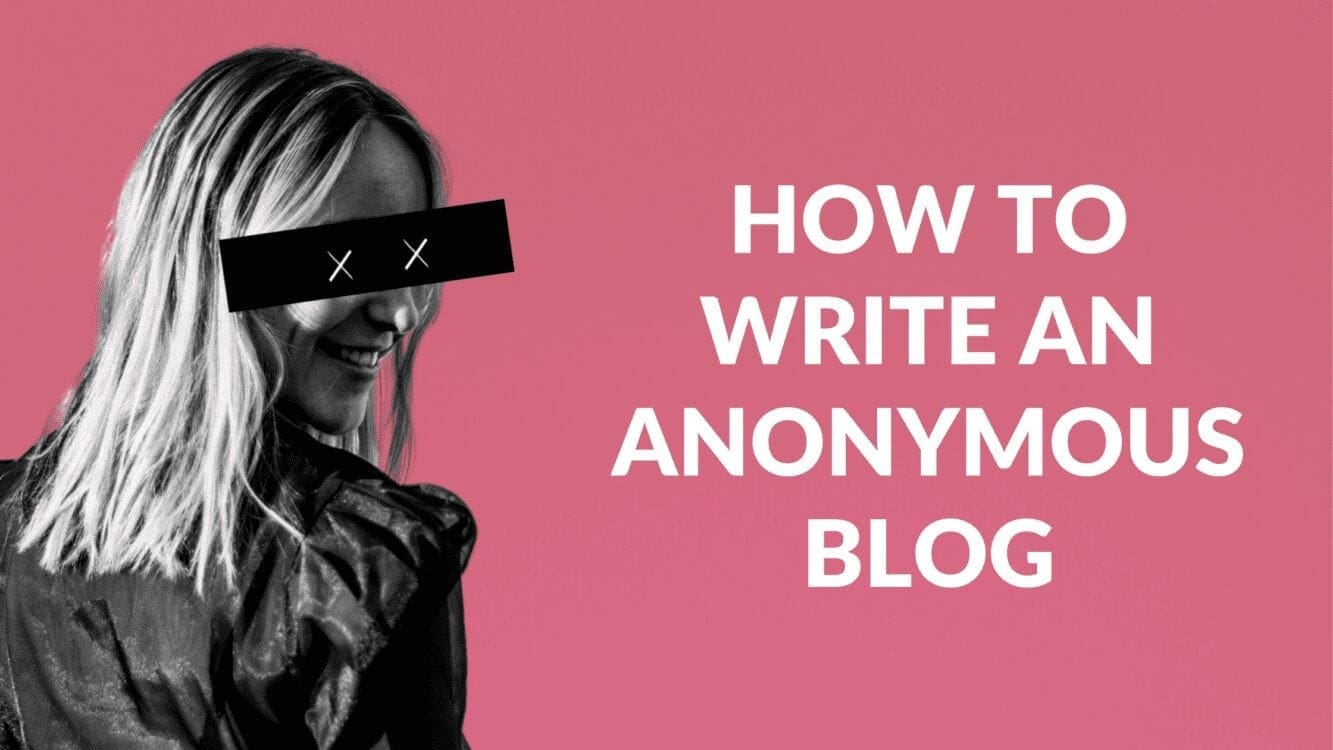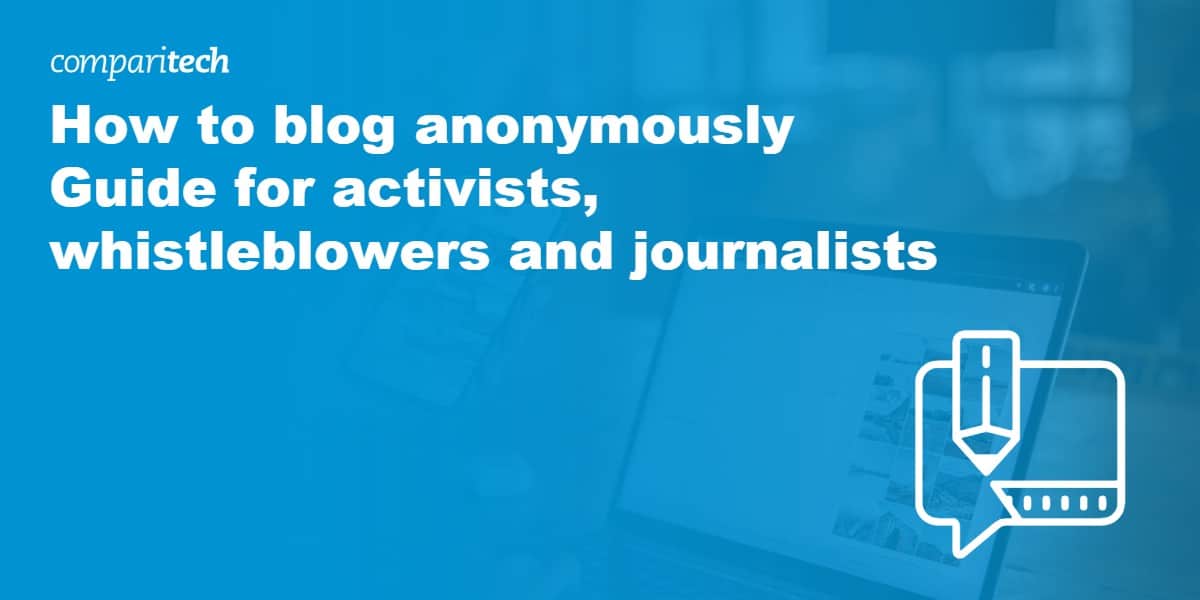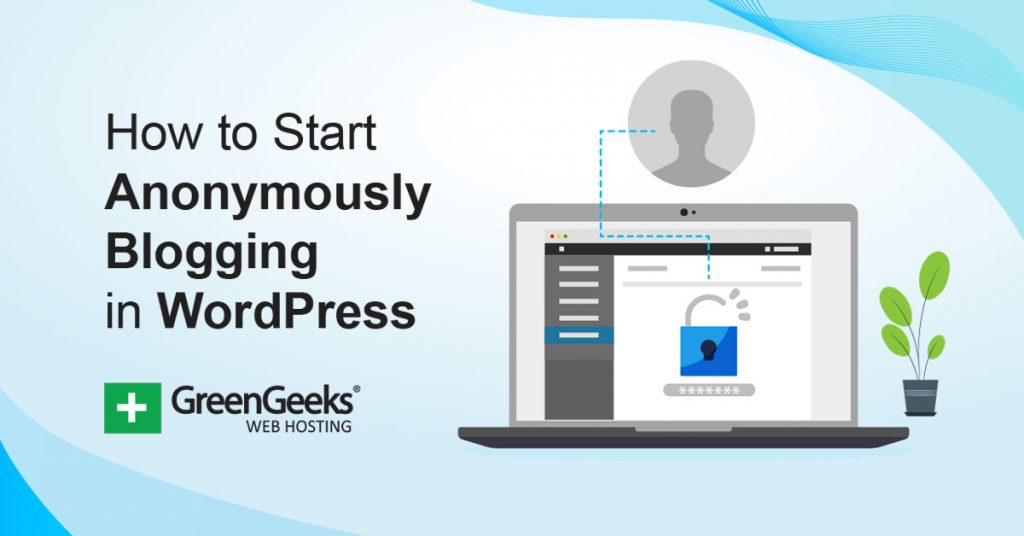Why Anonymity Matters in the Blogging World
In the vast expanse of the internet, blogging has become a powerful medium for self-expression and sharing ideas. However, for many individuals, the fear of retribution, harassment, or judgment can be a significant deterrent to sharing their thoughts and opinions online. This is where anonymity comes into play. Anonymous blogging provides a safe haven for individuals to express themselves freely, without the burden of revealing their identity. By blogging anonymously, individuals can protect themselves from potential backlash, maintain their personal and professional reputation, and focus on sharing their ideas and expertise without fear of reprisal.
One of the primary benefits of anonymous blogging is the freedom of speech it affords. When individuals are not constrained by the fear of judgment or retribution, they are more likely to share their honest opinions and perspectives. This, in turn, can lead to a more open and diverse exchange of ideas, as individuals feel empowered to contribute to the online conversation without fear of repercussions. Furthermore, anonymous blogging can provide a platform for whistleblowers, activists, and individuals with sensitive information to share their stories and bring attention to important issues, all while maintaining their anonymity.
In addition to the benefits of freedom of speech, anonymous blogging can also provide a level of protection from harassment and online abuse. By keeping their identity hidden, individuals can avoid the risk of being targeted by trolls, cyberbullies, and other malicious actors. This is particularly important for individuals who may be sharing sensitive or controversial information, as it allows them to maintain their safety and security while still contributing to the online conversation.
For those wondering how to blog anonymously, it’s essential to understand the importance of anonymity in the blogging world. By recognizing the benefits and value of anonymous blogging, individuals can take the necessary steps to protect their identity and maintain their freedom of speech. Whether you’re a seasoned blogger or just starting out, understanding the importance of anonymity can help you navigate the complex world of online publishing and ensure that your voice is heard, without compromising your safety or security.
Choosing the Right Platform for Anonymous Blogging
When it comes to blogging anonymously, choosing the right platform is crucial. With so many options available, it can be overwhelming to decide which one to use. However, some platforms are better suited for anonymous blogging than others. In this section, we’ll explore the differences between various blogging platforms and discuss which ones offer the most anonymity features.
WordPress, for example, is a popular choice among bloggers. However, it requires users to provide personal information during the registration process, which can compromise anonymity. On the other hand, platforms like Blogger and Medium offer more anonymous registration options, making them a better choice for those who want to blog anonymously.
Another important factor to consider when choosing a platform is IP address masking. Some platforms, like WordPress, offer IP address masking as a built-in feature, while others may require users to use third-party plugins or services. Blogger, for example, offers a feature called “Anonymous Blogging” that allows users to mask their IP address and blog anonymously.
Medium, on the other hand, offers a more nuanced approach to anonymity. While it doesn’t offer IP address masking as a built-in feature, it does allow users to create anonymous accounts and publish content without revealing their identity. However, Medium’s terms of service require users to provide accurate and truthful information during the registration process, which may compromise anonymity.
Ultimately, the choice of platform will depend on the individual’s specific needs and preferences. However, by understanding the differences between various platforms and their anonymity features, individuals can make an informed decision and choose the platform that best suits their needs. Whether you’re looking to blog anonymously for personal or professional reasons, choosing the right platform is the first step towards maintaining your anonymity online.
Setting Up a Secure and Anonymous Blog
Setting up a secure and anonymous blog requires careful planning and execution. In this section, we’ll provide step-by-step instructions on how to register a domain name, choose a web host, and configure SSL encryption to ensure your blog remains anonymous and secure.
Step 1: Register a Domain Name
Registering a domain name is the first step in setting up a secure and anonymous blog. When choosing a domain name, it’s essential to select a registrar that offers anonymous registration options. Some popular registrars that offer anonymous registration include Namecheap and Domains by Proxy. These registrars allow you to register a domain name without revealing your personal information.
Step 2: Choose a Web Host
Once you’ve registered your domain name, you’ll need to choose a web host that offers anonymous hosting options. Some popular web hosts that offer anonymous hosting include HostGator and Bluehost. These web hosts allow you to host your blog without revealing your personal information.
Step 3: Configure SSL Encryption
Configuring SSL encryption is essential for securing your blog and protecting your readers’ data. SSL encryption ensures that all data transmitted between your blog and your readers’ browsers remains encrypted and secure. To configure SSL encryption, you’ll need to obtain an SSL certificate from a trusted certificate authority such as Let’s Encrypt or GlobalSign.
Step 4: Set Up Anonymous Blogging Software
Once you’ve set up your domain name, web host, and SSL encryption, you’ll need to set up anonymous blogging software. Some popular anonymous blogging software includes WordPress and Ghost. These software options allow you to create and manage your blog without revealing your personal information.
By following these steps, you can set up a secure and anonymous blog that protects your identity and ensures your readers’ data remains secure. Remember to always use a VPN and anonymous registration options to maintain your anonymity online.
How to Write Anonymously Without Revealing Your Identity
Writing anonymously requires a delicate balance between sharing your thoughts and opinions without revealing your identity. When learning how to blog anonymously, it’s essential to develop a writing style that maintains your anonymity while still engaging your readers. In this section, we’ll provide tips on how to write anonymously, including how to use pseudonyms, avoid personal details, and create a consistent writing style that doesn’t reveal your identity.
Using Pseudonyms
One of the most effective ways to maintain anonymity while writing is to use a pseudonym. A pseudonym is a fictional name or alias that you can use to identify yourself as the author of your blog. When choosing a pseudonym, it’s essential to select a name that is not easily traceable to your real identity. Avoid using names that are similar to your real name or that contain personal details that could reveal your identity.
Avoiding Personal Details
Another crucial aspect of writing anonymously is avoiding personal details that could reveal your identity. This includes avoiding mentions of your real name, location, occupation, or any other personal details that could be used to identify you. It’s also essential to avoid sharing personal anecdotes or stories that could be used to piece together your identity.
Creating a Consistent Writing Style
Developing a consistent writing style is essential for maintaining anonymity while writing. A consistent writing style can help to create a sense of continuity and coherence in your writing, making it more difficult for readers to identify you. To create a consistent writing style, focus on using a specific tone, voice, and language throughout your writing.
Using Anonymous Writing Tools
There are several anonymous writing tools available that can help you to maintain your anonymity while writing. These tools include anonymous writing software, such as Tor, and anonymous blogging platforms, such as WordPress. These tools can help to protect your identity and maintain your anonymity while writing.
By following these tips, you can learn how to write anonymously without revealing your identity. Remember to always use a pseudonym, avoid personal details, and create a consistent writing style to maintain your anonymity while writing.
The Importance of Using a VPN for Anonymous Blogging
When it comes to anonymous blogging, using a Virtual Private Network (VPN) is essential for protecting your online identity and maintaining your anonymity. A VPN creates a secure and encrypted connection between your device and the internet, making it difficult for anyone to track your online activities or identify your IP address.
How a VPN Works
A VPN works by routing your internet traffic through a secure server, which masks your IP address and encrypts your data. This makes it impossible for anyone to track your online activities or identify your location. When you use a VPN, your internet traffic appears to be coming from the VPN server, rather than your actual location.
Benefits of Using a VPN for Anonymous Blogging
Using a VPN for anonymous blogging provides several benefits, including:
IP Address Masking: A VPN masks your IP address, making it impossible for anyone to track your online activities or identify your location.
Encryption: A VPN encrypts your data, making it difficult for anyone to intercept or read your online communications.
Anonymity: A VPN provides anonymity, making it difficult for anyone to identify your online activities or track your online behavior.
Security: A VPN provides an additional layer of security, protecting your online communications from hacking and other forms of cyber attacks.
Choosing a VPN for Anonymous Blogging
When choosing a VPN for anonymous blogging, it’s essential to select a reputable provider that offers strong encryption, IP address masking, and anonymity. Some popular VPN providers for anonymous blogging include ExpressVPN, NordVPN, and ProtonVPN.
By using a VPN for anonymous blogging, you can protect your online identity, maintain your anonymity, and ensure that your online communications remain secure and private.
Managing Comments and Engagement as an Anonymous Blogger
As an anonymous blogger, managing comments and engagement on your blog can be a delicate task. On one hand, you want to encourage discussion and build a community around your blog, but on the other hand, you need to protect your identity and maintain your anonymity. In this section, we’ll provide tips on how to manage comments and engagement on an anonymous blog, including how to use moderation tools, respond to comments without revealing your identity, and build a community around your blog.
Using Moderation Tools
Moderation tools are essential for managing comments and engagement on an anonymous blog. These tools allow you to filter out spam comments, block abusive users, and manage the tone of the conversation on your blog. Some popular moderation tools include Akismet, Disqus, and Livefyre.
Responding to Comments Without Revealing Your Identity
Responding to comments on an anonymous blog can be challenging, as you need to maintain your anonymity while still engaging with your readers. One way to do this is to use a pseudonym or a generic username when responding to comments. You can also use a tone that is consistent with your blog’s voice and style, without revealing any personal details.
Building a Community Around Your Blog
Building a community around your anonymous blog requires careful planning and execution. One way to do this is to create a Facebook group or a Reddit community dedicated to your blog’s topic. You can also use social media to promote your blog and engage with your readers, without revealing your identity.
Engaging with Your Readers
Engaging with your readers is essential for building a community around your anonymous blog. You can do this by responding to comments, answering questions, and providing valuable information and insights to your readers. You can also use email newsletters and social media to stay in touch with your readers and keep them updated on your blog’s latest content.
By following these tips, you can manage comments and engagement on your anonymous blog, while maintaining your anonymity and building a community around your blog.
Common Mistakes to Avoid When Blogging Anonymously
As an anonymous blogger, it’s essential to avoid common mistakes that can compromise your anonymity and put your identity at risk. In this section, we’ll discuss some of the most common mistakes that anonymous bloggers make, including revealing personal details, using identifiable writing styles, and failing to secure their blog.
Revealing Personal Details
One of the most common mistakes that anonymous bloggers make is revealing personal details that can be used to identify them. This can include mentioning their location, occupation, or personal relationships. To avoid this mistake, it’s essential to be mindful of the information you share on your blog and to use pseudonyms or generic descriptions instead of personal details.
Using Identifiable Writing Styles
Another mistake that anonymous bloggers make is using identifiable writing styles that can be used to identify them. This can include using a unique tone, language, or syntax that is characteristic of their writing style. To avoid this mistake, it’s essential to use a consistent writing style that is not easily identifiable as your own.
Failing to Secure Your Blog
Failing to secure your blog is another common mistake that anonymous bloggers make. This can include failing to use SSL encryption, not updating your blog’s software, and not using strong passwords. To avoid this mistake, it’s essential to take steps to secure your blog, including using SSL encryption, updating your blog’s software, and using strong passwords.
Not Using a VPN
Not using a VPN is another common mistake that anonymous bloggers make. A VPN can help to mask your IP address and protect your online identity. To avoid this mistake, it’s essential to use a VPN when blogging anonymously.
By avoiding these common mistakes, you can help to protect your anonymity and maintain your online identity. Remember to always be mindful of the information you share on your blog and to take steps to secure your blog and protect your online identity.
Conclusion: The Benefits and Challenges of Anonymous Blogging
Anonymous blogging can be a powerful tool for self-expression and sharing ideas without fear of retribution. However, it also comes with its own set of challenges and risks. In this article, we’ve discussed the importance of anonymity in blogging, including the benefits of freedom of speech, protection from harassment, and the ability to share sensitive information without fear of retribution.
We’ve also explored the different platforms and tools available for anonymous blogging, including WordPress, Blogger, and Medium, and discussed the importance of using a VPN to mask your IP address and protect your online identity. Additionally, we’ve provided tips on how to write anonymously, manage comments and engagement, and avoid common mistakes that can compromise your anonymity.
While anonymous blogging can be a liberating experience, it’s essential to be aware of the potential risks and challenges involved. Harassment, cyberbullying, and online abuse are all real concerns for anonymous bloggers, and it’s crucial to take steps to protect yourself and your online identity.
By understanding the benefits and challenges of anonymous blogging, you can make informed decisions about how to share your ideas and express yourself online. Whether you’re a seasoned blogger or just starting out, anonymous blogging can be a powerful tool for self-expression and sharing your voice with the world.
Remember, anonymous blogging is not just about hiding your identity, but also about taking control of your online presence and sharing your ideas with the world. By following the tips and guidelines outlined in this article, you can create a secure and anonymous blog that allows you to express yourself freely and share your ideas with others.






